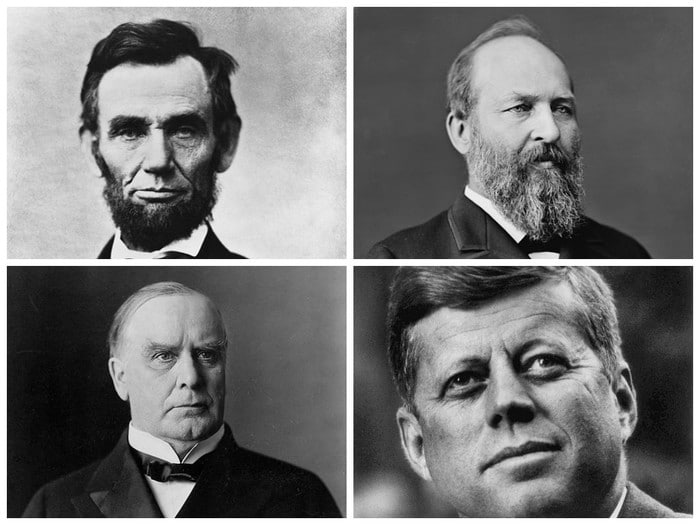
The tragic fate of a leader can leave an indelible mark on a nation, and in the history of the United States, several presidents have met their untimely demise while serving in office. Their deaths not only altered the course of their presidencies but also had profound implications for the political landscape of the country. Understanding these events provides valuable insights into the fragility of life and leadership at the highest levels.
Throughout American history, the deaths of sitting presidents have often been shrouded in mystery, speculation, and sometimes controversy. From assassination to illness, the circumstances surrounding these leaders' passings have sparked discussions about their legacies and the impact of their policies. The loss of a president can create a power vacuum, leading to significant changes in governance and public sentiment.
In this article, we will delve into the lives and untimely deaths of the presidents who died in office, exploring their contributions, the circumstances of their deaths, and how these events shaped the future of the nation. Join us on this journey as we uncover the stories behind these pivotal moments in American history.
Who Were the Presidents That Died in Office?
Throughout the history of the United States, a total of eight presidents have died while in office. These leaders faced various challenges during their presidencies, and their deaths had lasting repercussions. Here is a list of those presidents:
- William Henry Harrison
- Zachary Taylor
- Abraham Lincoln
- James A. Garfield
- William McKinley
- Harding
- Franklin D. Roosevelt
- John F. Kennedy
What Were the Causes of Their Deaths?
The reasons behind the deaths of presidents who died in office vary greatly, ranging from natural causes to acts of violence. Understanding these causes provides insight into the vulnerabilities faced by leaders:
- William Henry Harrison: Pneumonia
- Zachary Taylor: Gastroenteritis
- Abraham Lincoln: Assassination
- James A. Garfield: Assassination (wound infection)
- William McKinley: Assassination
- Warren G. Harding: Heart attack
- Franklin D. Roosevelt: Cerebral hemorrhage
- John F. Kennedy: Assassination
How Did Their Deaths Impact the Nation?
The passing of a sitting president can significantly change the political landscape, often leading to shifts in policy and public opinion. For instance:
- Lincoln's assassination during the Reconstruction era left a political vacuum that complicated efforts to unify the nation after the Civil War.
- Kennedy's assassination shocked the nation and led to a period of social and political upheaval in the 1960s.
What Were the Circumstances Surrounding Their Deaths?
Each president's death carries its own unique story, influenced by the historical context and personal circumstances of their lives. For example:
William Henry Harrison: The Shortest Presidency
William Henry Harrison served only 32 days before succumbing to pneumonia, making his presidency the shortest in American history. His inaugural address, which lasted nearly two hours in inclement weather, is often cited as a contributing factor to his illness.
Abraham Lincoln: Martyrdom and Legacy
Lincoln was assassinated by John Wilkes Booth in Ford's Theatre, a shocking event that forever changed the course of American history. His death not only marked the end of an era but also elevated him to the status of martyr for the Union cause.
How Did Successors React to Their Deaths?
The vice presidents who assumed office after the death of a president often faced significant challenges as they navigated the complexities of their predecessors' legacies. For instance:
- Andrew Johnson, who succeeded Lincoln, faced immense opposition as he attempted to implement his Reconstruction policies.
- Harry S. Truman, who took over after FDR, had to confront the challenges of post-war America and the onset of the Cold War.
What Are the Lasting Legacies of These Presidents?
The legacies of presidents who died in office are often intertwined with the circumstances of their deaths. Their contributions to American society and governance continue to be debated and discussed today.
How Are These Presidents Remembered Today?
Public perception of these leaders has evolved over time. Some are celebrated for their vision, while others are scrutinized for their policies. Memorials, biographies, and historical analyses contribute to their enduring legacies, ensuring that their stories are not forgotten.
Conclusion: Reflecting on the Fragility of Leadership
The history of presidents who died in office serves as a poignant reminder of the vulnerabilities inherent in leadership. Their deaths not only impacted their immediate successors but also shaped the future of the nation. As we continue to reflect on their legacies, we are reminded of the weight of responsibility carried by those who lead.
In remembering these presidents, we honor their contributions and acknowledge the lessons learned from their untimely departures. Their stories are woven into the fabric of American history, reminding us of the fragility of life and the enduring power of leadership.
ncG1vNJzZmivp6x7o77EnKKepJxjwqx71aKpmqSmnq%2Bmv5Vop6udo56xprrTrGSwoJ9isaqxw2agp2Wfm7Oqr8Rnn62lnA%3D%3D